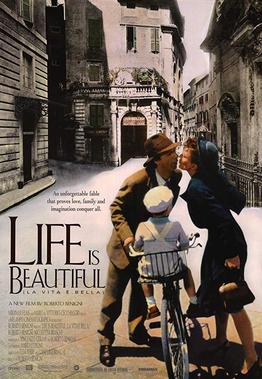For all of our readers that stay up-to-date with Opodo’s blogs, our previous movie-related post took us through the cinematic journey of India. We continue the movie journey, only this time, with a tour of Italy. This beautiful country has a long and prolific relationship with the big screen, with an art form that is well suited to describe the intensity of their landscapes and personality. For those curious to dive into the cinematic world of, what is in our opinion, the films that best describe Italy, here is our list of top cinematic stories that evoke the dream-like, melancholic, irreverent or simply magnificent. If the topic intrigues you, take a look at our guide “Cities in 8 mm“, which takes you to some of the world’s most beautiful destinations, one movie at a time.
Ladri di Biciclette (The Bicycle Thieves)

Story: Rome, during the World War. It’s the story of Antonio Ricci, a municipal employee, and his adventures to retrieve his bicycle, which was stolen.
Technical Specs: Directed by: Vittorio De Sica in 1948. The protagonists are amateur actors taken from the streets.
Reasons to watch:
- It is one of the most representative works of Italian neorealism.
- For the slice of life in Rome represented during the war.
- Because the main actor is in actuality, Rome, its people and atmosphere.
- It won the Oscar for best foreign film in 1949.
La Dolce Vita (The Sweet Life)

Story: Set in the late 50s. The film chronicles the life of Marcello Rubini, a journalist in Rome, as he deals with news, gossip, scandal, and his “sweet life”, of parties, women and various adventures.
Technical Specs: Directed by Federico Fellini in 1960, with Marcello Mastroianni and Anita Ekberg.
Reasons to watch:
- It’s considered one of the most famous films in cinematic history
- For the famous scene of the bath in the Fontana di Trevi between Marcello Mastroianni and Anita Ekberg.
- For the intensity in dialogue.
Tutti a Casa (All Go Home)

Story: After news of the Armistice on September 8, 1943, which marked the end of World War II, the soldiers are euphoric and do not see the moment arrive soon enough when they can finally return home. Unfortunately, however, they will be confronted with a harsh reality: After being put on the road, the soldiers will encounter enemies in the German force, facing an unexpected destiny.
Technical Specs: Directed by Luigi Comencini in 1960, with Alberto Sordi and Eduardo De Filippo.
Reasons to Watch
- It helps to better understand the history of Italy at the end of the war, and to understand the reasons for the partisan struggle.
- Because it was included as part of the “100 films that changed the collective memory of the country between 1942 and 1978”.
- Because Alberto Sordi is among the most famous Italian actors.
- It was one of the most controversial films of its time.
La Vita è Bella (Life is Beautiful)

Story: A look into the life of a Jewish man, Guido Orefice, who lives in Tuscany with his wife Dora and his son Joshua. Family happiness is abruptly interrupted by their capture by the Nazis, where they are deported to a concentration camp. To protect his son from the horrible reality of their current life, Guido creates a game, where the goal is to win a tank.
Technical Specs: Directed by Roberto Benigni in 1997. With Roberto Benigni and Nicoletta Braschi.
Reasons to Watch:
- This film won 3 Oscars and is considered one of the greatest Italian films of all time.
- Because it recounts the horror of the deportation of Italian Jews into Nazi concentration camps in a poetic and moving way, all the while allowing the main thread in the story, love, to conquer all.
- Because Roberto Benigni. He’s a magnificent actor and director, and a true gem in his genre. Watching him, is in itself, a treat.
- Because it might give anyone who watches it the reassured hope that love can be grand and magnificent. It also might make any woman swoon, every time Roberto Benigni says: “buongiorno principessa!”
Il Postino (The Postman)

Story: Based on the book “Neruda’s Postman”, by the Chilean writer Antonio Skármeta. The story takes place on a small island south of Italy, which gave political asylum to the writer Pablo Neruda. In the film, a simple postman learns to love poetry and literature through the bond he forms with the famous poet he delivers mail to.
Technical Specs: Directed by Michael Radford in 1994. With Massimo Troisi, Philippe Noiret and Maria Grazia Cucinotta.
Reasons to Watch:
- For the scenes shot on the beautiful island of Procida.
- For the incredible performance by comico Massimo Troisi.
- Because it received great critique.



